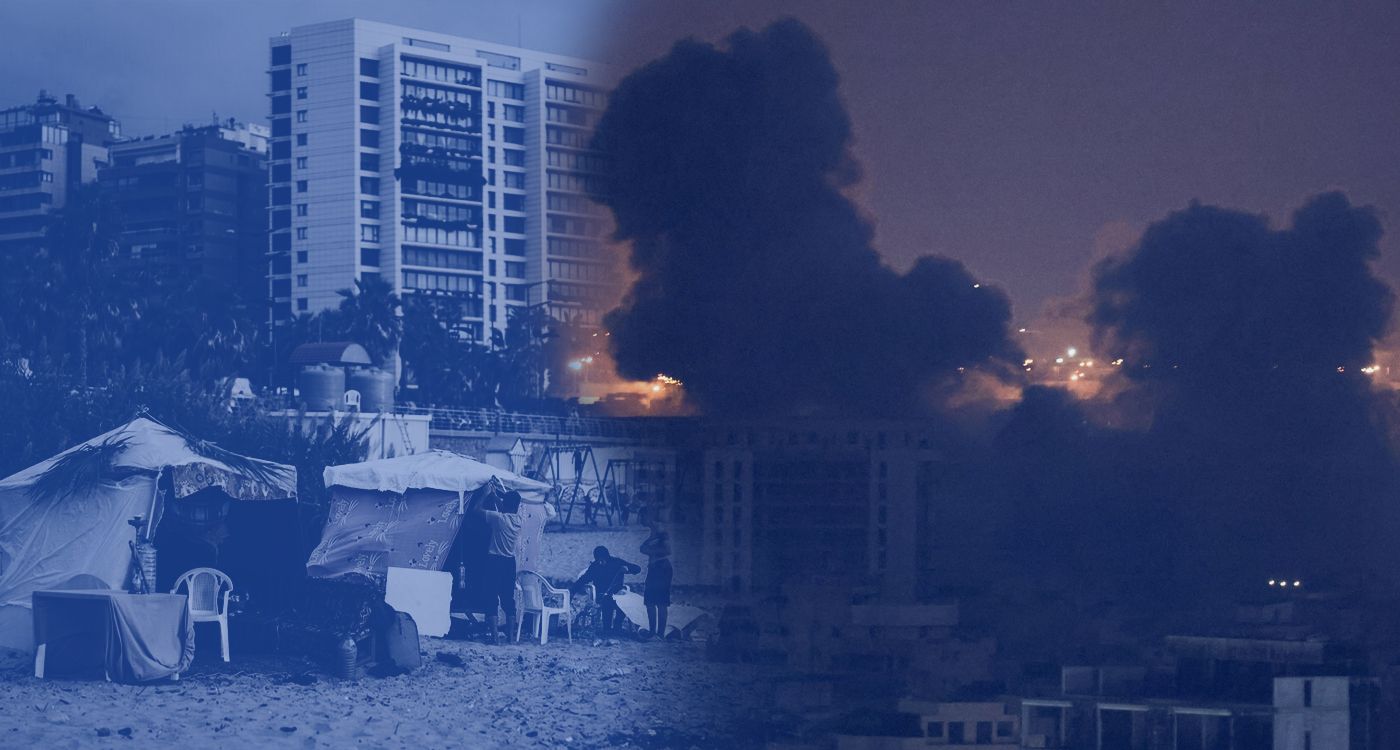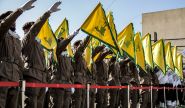
Lebanese citizens are grappling with many questions, chief among them: how did we end up here? Why did Hezbollah pursue a war that no one asked for? Was it arrogance, or a trap? Did Iran abandon its militias, or is this just arrogance masked by empty promises? The south of Lebanon is now desolate, with over half a million displaced. Dahye is a ghost town, left to ruin. People huddle in schools and on streets, sleeping on floors and cheap mattresses. Where is the dignity in this? Why do the leaders hide in bunkers while failing to provide shelters for their own people? Is their arrogance leading them to neglect the very lives they claim to protect?
It has become clear that there was no proper evacuation plan, no adequate support for the displaced, and not even a decent shelter prepared in a country that has been in a near-perpetual state of war. When Lebanese citizens raised their voices against the war, they were mocked. Hezbollah’s media and supporters portrayed themselves as above the nation, key regional players, mocking the opposition as traitors. But now, it's clear that the real betrayal lay within Hezbollah’s own ranks. They convinced themselves they were partners with regional powers, forgetting that in the grand geopolitical game, they are merely pawns—sacrificing Lebanon's future for their misguided ambitions and Iran’s interests. What they claimed to defend has been handed over to Israel, leaving us to deal with the fallout of arrogance and a false sense of invincibility.
A small country, not even the size of Long Island, believed it could operate like a global power. Hezbollah sold the illusion of standing up to the West, the Gulf, and Israel, relying on the assumption that Iran would always back them. But now, they find themselves abandoned. You can't fight with emotions; while powerful, they are blind. Logic and strategy win wars. Misreading or ignoring the signs and entering a conflict without a clear plan is akin to walking blindly into a trap—an act of self-destruction. That is precisely what happened—the warnings were there. From the “Prophecy of Isaiah” speech to Netanyahu’s remarks about a "new Middle East," it’s evident that Israel wanted this war, and Hezbollah walked right into it.
Do you recall when Netanyahu proclaimed this would be the last war on Lebanon? Why such confidence in the outcome?
How did Hezbollah misread the signs? Did Nasrallah doubt Hamas’ infiltration on October 7th, or did he genuinely believe it was legitimate? Why did he adhere to the rules of engagement? Did he fail to see Iran’s lack of support for Hamas?
The devastation in Gaza, the horrific civilian casualties, and the international community’s muted response to Israel’s actions suggest a larger agenda. Netanyahu’s speech before Congress—met with applause despite what many perceive as genocidal acts—signals a deeper, globally supported plan.
Arab states’ responses have been calculated, leaving Lebanon to bear the consequences, much like the Palestinians in Gaza. No help will come from the Arab League or Western countries. It appears foreign powers are working to dismantle Iranian militias across the region, and Netanyahu has been given the green light to pursue his vision of a "new Middle East." A coup in Iran may be in motion, with Reza Pahlavi’s speech and potential strikes on Iran’s nuclear sites hinting at a power shift. This would cut off Hezbollah’s support at its source.
If Israel secures the northern border, will the Lebanese Shia be displaced to Iraq or northern Lebanon as part of this plan? Will foreign military boots land on Lebanese soil? These are questions we must ask without fear of being labeled traitors. Sooner or later, Resolution 1701 will be enforced, with UNIFIL and a newly funded Lebanese Army taking control of the south—but at what cost? This could have been achieved without paying such a heavy price. We must face reality, not cling to delusions.
Arrogance in leadership has led to the downfall of many regimes and militant groups. This unchecked hubris, born of a false sense of invincibility, causes leaders to miscalculate their strength, underestimate their enemies, and neglect their people’s well-being. History is full of such examples, from Emperor Hirohito in WWII to Saddam Hussein and Gaddafi. Today, Hezbollah’s fractured leadership shows similar traits, with dangerous implications for Lebanon and the region.
With Nasrallah’s death, Lebanon’s four major sects have each had their turn at the helm. Rafic Hariri’s arrogance led him to ignore death threats from Syria. Imam Sadr’s overconfidence lured him into a Libyan deathtrap. Bachir Gemayel thought Israeli backing would shield him. Kamal Jumblatt believed he could challenge the Syrian regime.As we find ourselves united in sacrifice, we must consider Lebanon’s future role in the region. Will foreign powers determine our fate? Have we failed in our pursuit of self-governance? Or are we on the path to fulfilling Hariri’s vision of a new Singapore?
Hezbollah’s betrayal, whether born of arrogance or Iranian influence, is evident. Yet, Netanyahu’s hubris will face its own reckoning. When this war ends, Israel may unravel from within, as nations driven by overconfidence often do. Lebanon will rise again, as it always has. But the question remains: What kind of Lebanon do we want? The answer lies in our hands—let’s hope it’s not too late to shape our future.



Comments